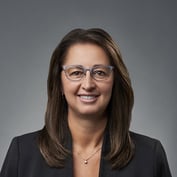What You Need to Know
- FinCEN wants to hear about large cash payments.
- The requirements affect issuers of permanent life policies and annuity contracts.
- Insurers should offer agents and advisors suspicious activity reporting tools.
The Financial Crimes Enforcement Network says this is a great time for people involved with all kinds of financial services — including permanent life insurance and annuities — to help spot and report foreign public corruption.
FinCEN asked financial institutions to focus on identifying kleptocrats in an advisory released Thursday.
“Russia is of particular concern as a kleptocracy because of the nexus between corruption, money laundering, malign influence and armed interventions abroad, and sanctions evasion,” FinCEN officials said in the advisory.
Efforts to park foreign kleptocrat money in the United States distort U.S. markets, and fighting kleptocracy is a way to protect democratic institutions around the world, officials said.
Officials called for financial institutions to look out for transactions that involve “red flags” such as:
- State-owned companies working with professional services providers in sketchy jurisdictions.
- Foreign government officials using personal accounts to conduct official business.
- Use of lawyers, accountants, financial advisors or other third parties to hide customers’ identities.
- Efforts to use fake email addresses and false invoices to hide the origin or ownership of money.
Here are six more things to know about FinCEN’s efforts to see what corrupt foreign governments are doing with their money in the United States.
1. The U.S. government began implementing modern financial crime fighting rules and programs in the early 2000s.
Governments around the world began drafting the crime fighting proposals in the late 1990s. Privacy and red tape concerns slowed U.S. adoption at first, but the Sept. 11, 2001, terrorist attacks on New York and Boston changed federal views of the proposals overnight.
FinCEN posted a 2005 guide with suspicious activity reporting information for insurance companies and insurance producers here, and a 2006 guide that refers to requirements for mutual fund managers, including variable annuity and variable life insurance programs here.
The National Association of Insurance Commissioners’ Antifraud Task Force has posted an easier-to-use suspicious activity report guide for insurance companies and insurance producers under the documents tab on its section of the NAIC’s website.
2. The heart of the kleptocrat detection efforts is the Form 8300 — Report of Cash Payments Over $10,000 Received in a Trade or Business.
Insurance agents, financial planners and other personal advisors do not have a direct responsibility to file Form 8300 reports, but they are supposed to let insurers know when the insurers should file those reports with FinCEN.
An insurer must file a Form 8300 for a cash payment for $10,000, and it can file a Form 8300 for a smaller cash payment that seems questionable.
If an insurer thinks a cash payment it´s reporting might be related to foreign public corruption, it should use Box 1b to note that the payment is a “suspicious transaction” and put “CORRUPTION-FIN-2022-A001″ in the Comments section of the report.









 April 15, 2022 at 03:22 PM
April 15, 2022 at 03:22 PM











